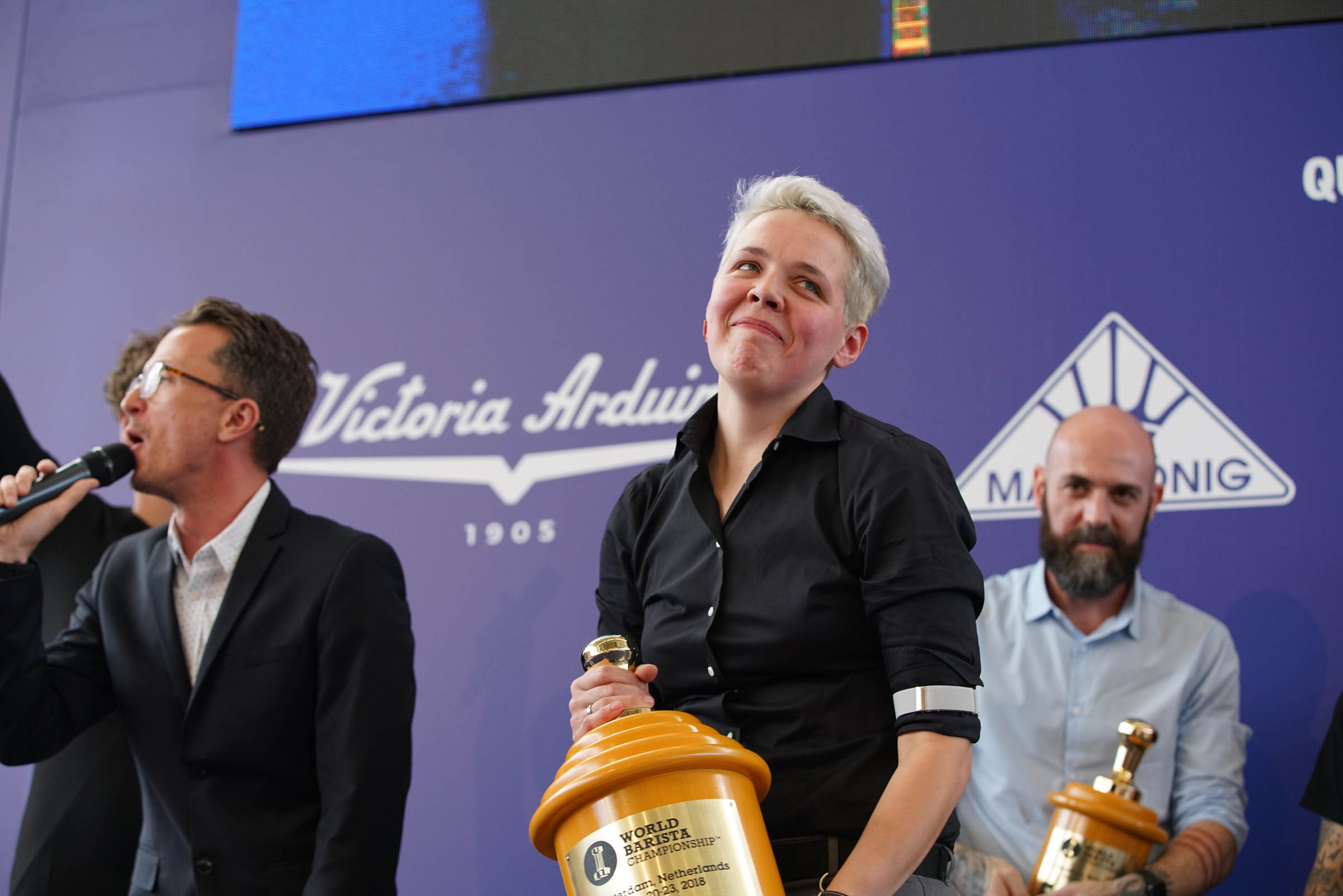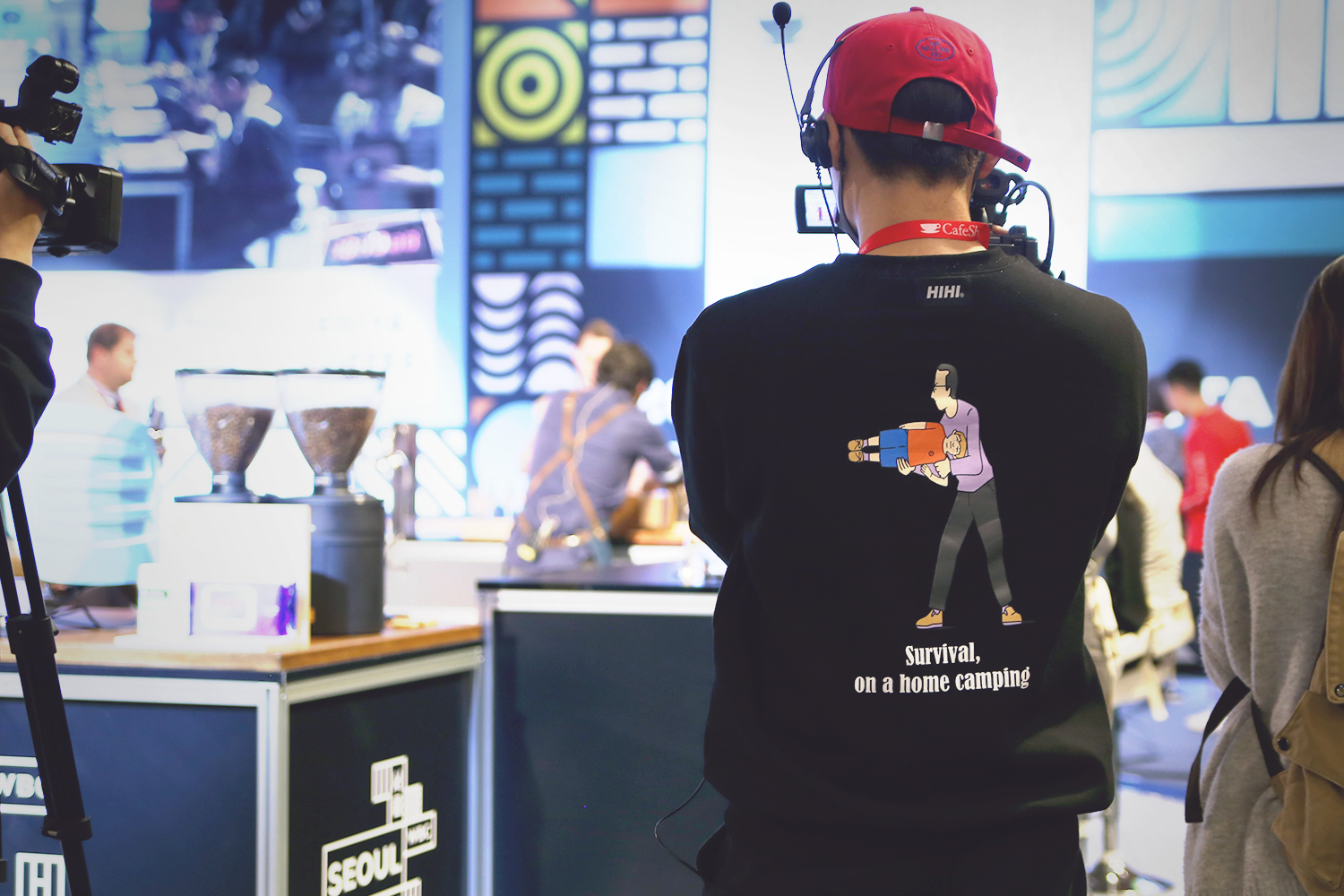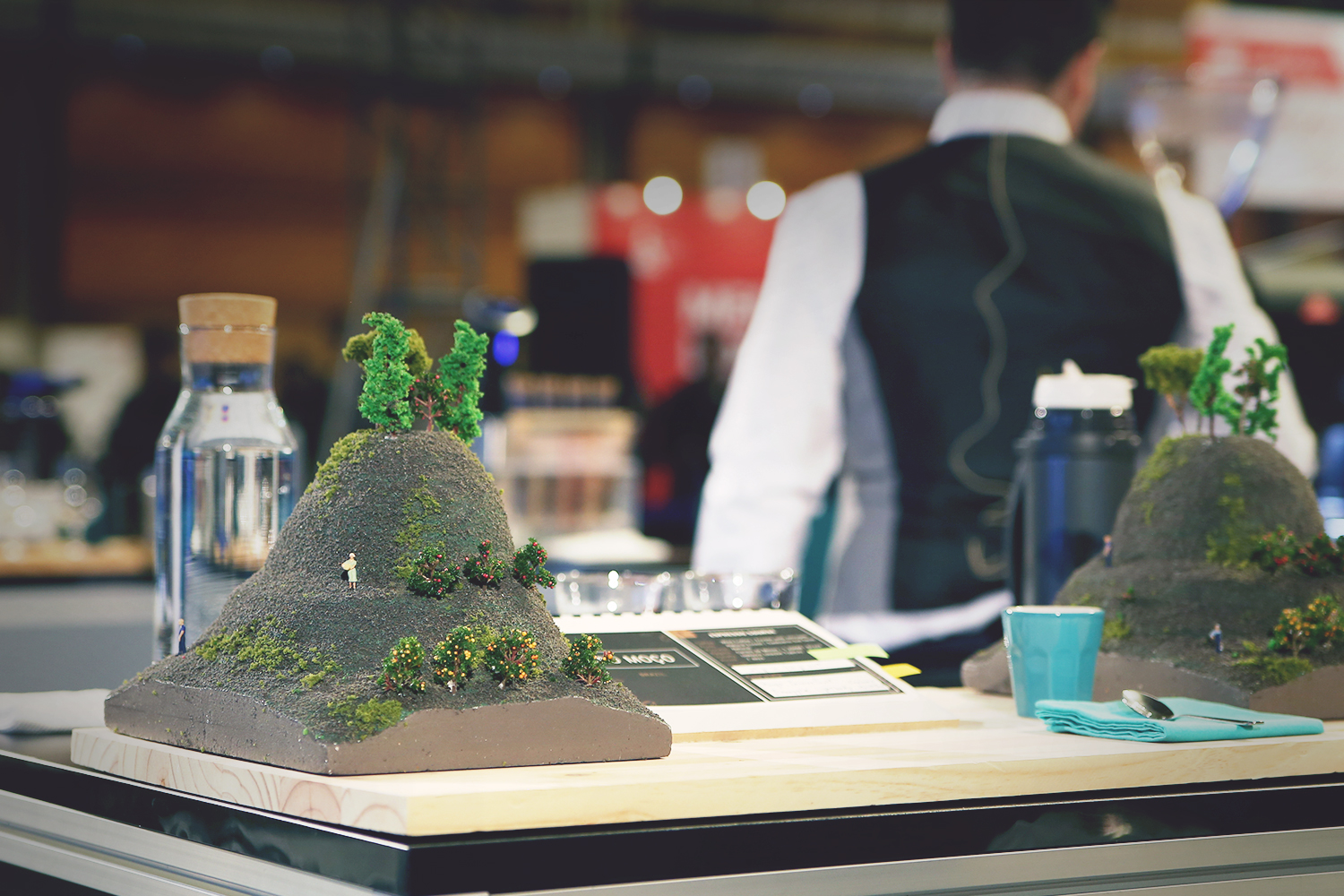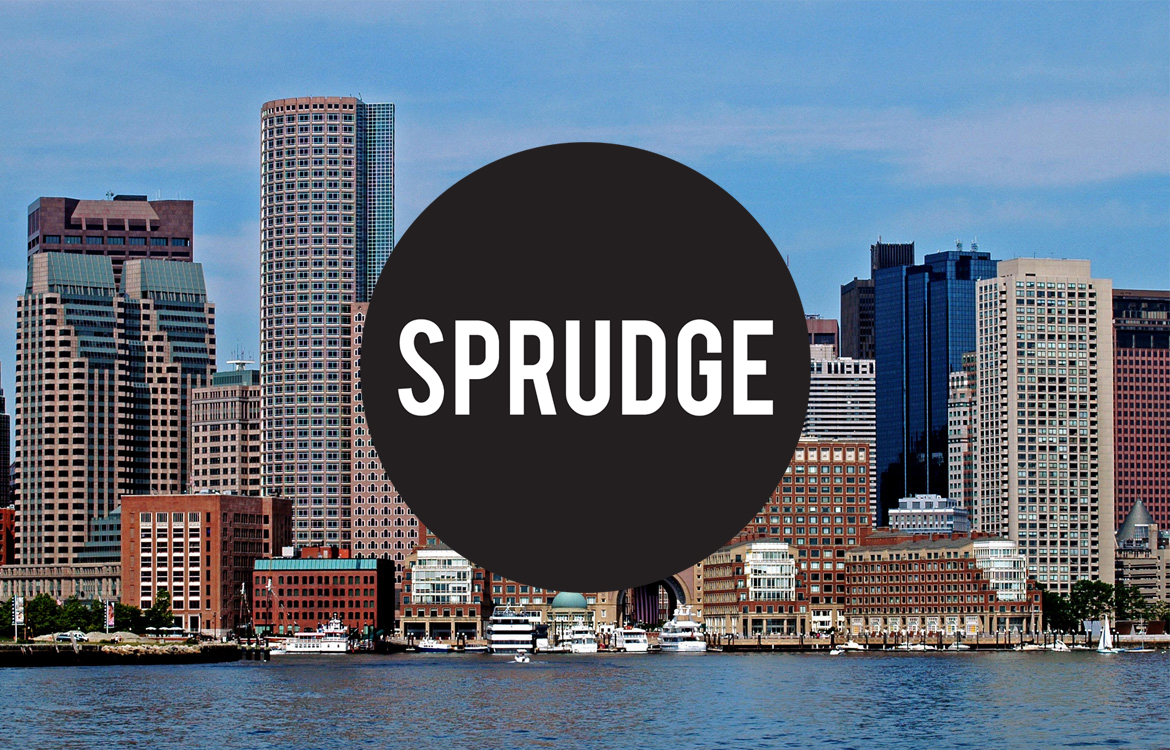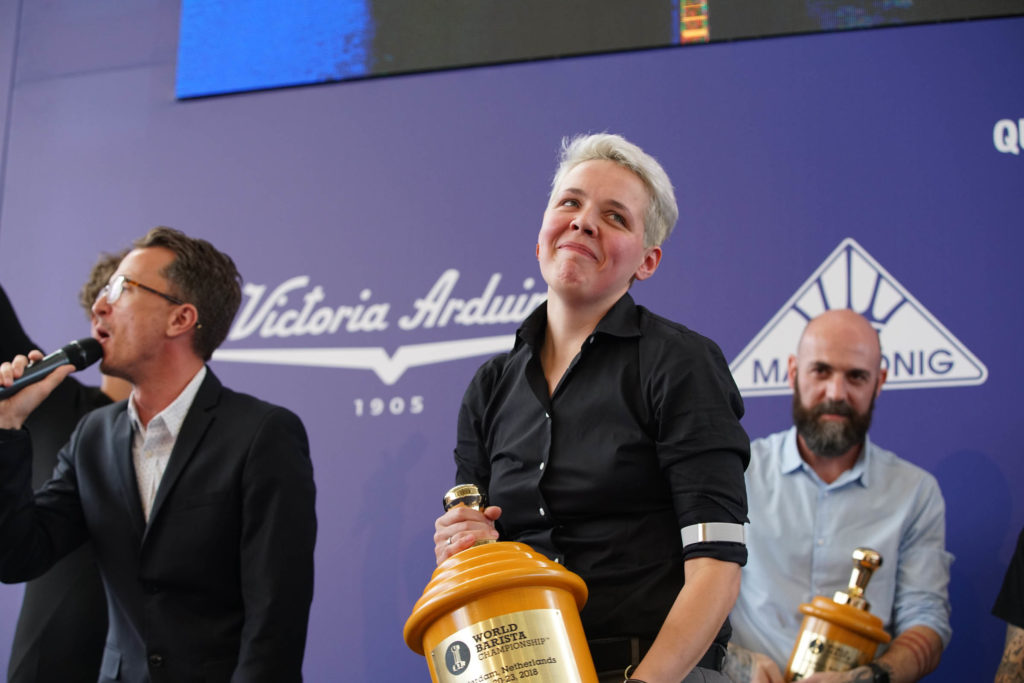
Agnieszka Rojewska of Poland is your 2018 World Barista Champion! Rojewska—”Aga” to her friends—won it all in Amsterdam at the 2018 World Barista Championship international event in June of 2018, and today we’re celebrating that win with the interview below. Sprudge Media Network has previously covered Rojewska’s big wins at the 2018 London Coffee Masters tournament and at the 2015 Polish Barista Championship. Read on to learn more about her epic victory at worlds this year!
Sprudge is an official media partner of the US Coffee Championships and World Coffee Events, wholly owned entities of the Specialty Coffee Association.
This interview has been edited gnd condensed for clarity.
A huge congrats on all of us for your big win! Can you describe the moment your name was called? How did it feel?
Thank you. I’m still surprised by what happened in Amsterdam and can’t really believe it.
The funny thing is I don’t remember the announcement. I remember being on stage with the final six, talking and laughing. And then, nothing—from there I wake up more less when (2017 WBC Champion) Dale Harris dragged me offstage with the trophy because I started to look pale.
I watched the announcement video later to check how I reacted… seems like I was bit shocked.
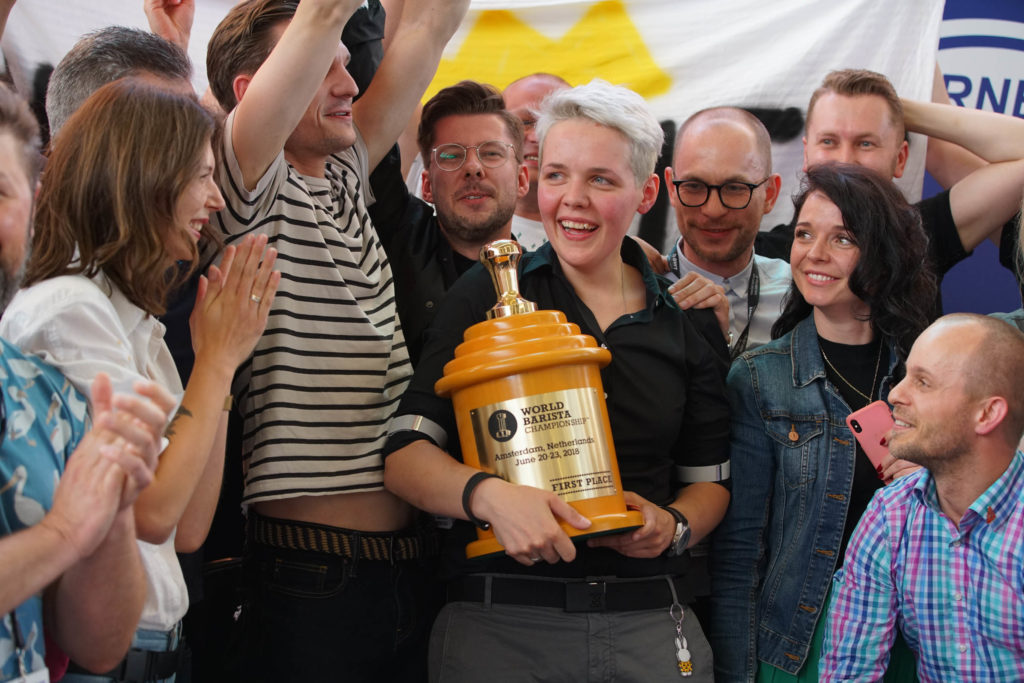
Shocked is certainly an understandable feeling! How many years of barista competition did it take you to win? When was your first year competing?
My first regionals in Poland were 2009, and my first nationals 2011. I made the finals every year in Poland after that, before I finally won nationals for the first time in 2015. Altogether it took me 10 years of competing in barista competitions to win Worlds.
What made you first fall in love with barista competitions as an event? Who has been your greatest inspiration as a barista competitor?
I’m quite a shy, quiet, and introverted person, so at first somebody had to force me to even go to a competition. I don’t recall why I decided to try it out myself, but it was fun, the people were very nice, and the process of preparation improved my skills a lot. I guess this was what kept me competing, meeting people, developing skills, and also fighting my own weaknesses. I needed to fight my introverted side to push myself on stage, and I started to get better at it. Stage is still not very friendly place for me—it terrifies me—but getting out of the comfort zone each time has helped me to be a better person.
You asked about inspiration, and in the beginning as a competitor I was so impressed by (2010 World Barista Champion) Michael Philips. I watched him during the 2009 WBC, when he came in 3rd, and then watched again when he came back in 2010 and won. This showed me that losing is just a lesson. But my greatest inspiration doesn’t come from coffee competitions—it is Roger Federer, the tennis player.
What coffee did you compete with at the 2018 World Barista Championship? Why did you pick this coffee? What did it taste like, and who roasted it?
I used an Ethiopian coffee from Masina Village, which is quite a new growing area. I was supported with coffee by Ona Coffee from Australia—this is their new project with experimental processing for Ethiopian coffees. It was roasted in Canberra by Sam Corra.
Mostly you could find a lot of yellow fruits in that coffee. The first time we tried it was tasting like peach and passionfruit, but in Amsterdam we get mostly orange and plum, with some hints of peach.
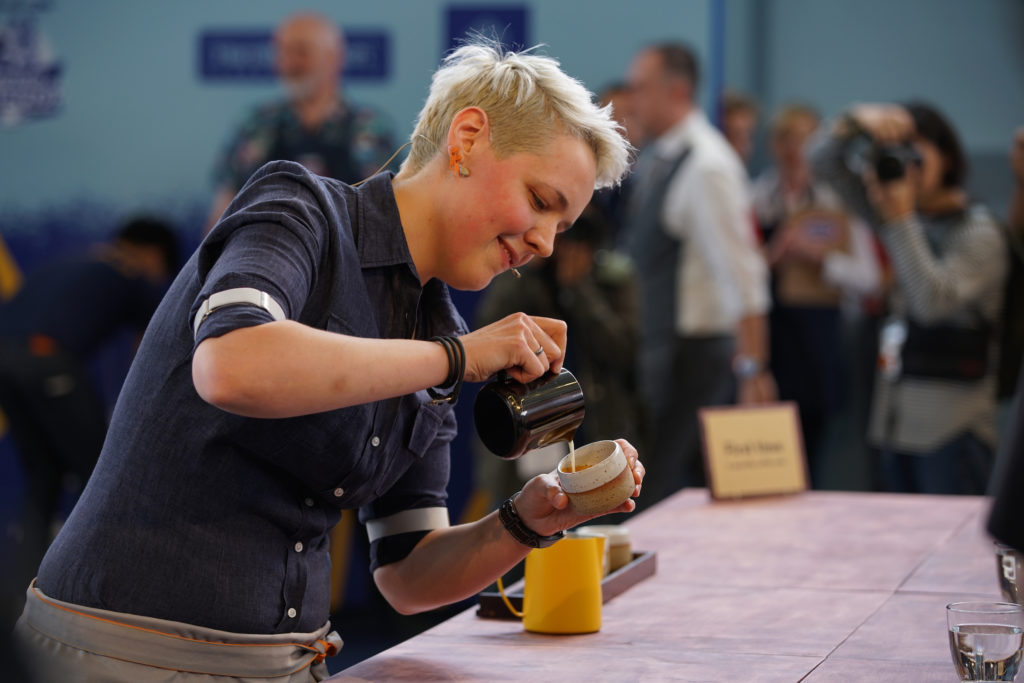
What signature drink did you use at the 2018 World Barista Championship? How did you develop this drink?
I made a signature beverage using several components, including:
– homemade passionfruit infusion made from passion fruit, sugar, and water cooked together in low temperature.
– “washed” milk—meaning milk without proteins
– Roiboos cold brew
– six shots of espresso
I wanted these ingredients to represent different stages of preparation of coffee: terroir, processing, roasting, and the barista, and to enhance those natural characteristics from those stages.
Describe your day to day life over these last few months since winning the WBC—are you doing lots of consulting work? Lots of travel? Has your life changed since winning WBC?
The biggest problem now is that every day looks pretty different. I wake up every few days in different place (hotel, apartment, city) and than go to work, which is mostly a training course or a workshop. After that workshop I either get into a car and drive somewhere else, or I go to the airport.
My life and schedule have become more intense than it was before, but there is not such a big change yet. I’ve had a lot of offers to travel, and so more and more my biggest problem comes with putting them all into calendar. I believe that it is too soon to say if things have truly changed, but I see new opportunities and new doors opening ahead of me. I’m taking my time to choose cooperation wisely.
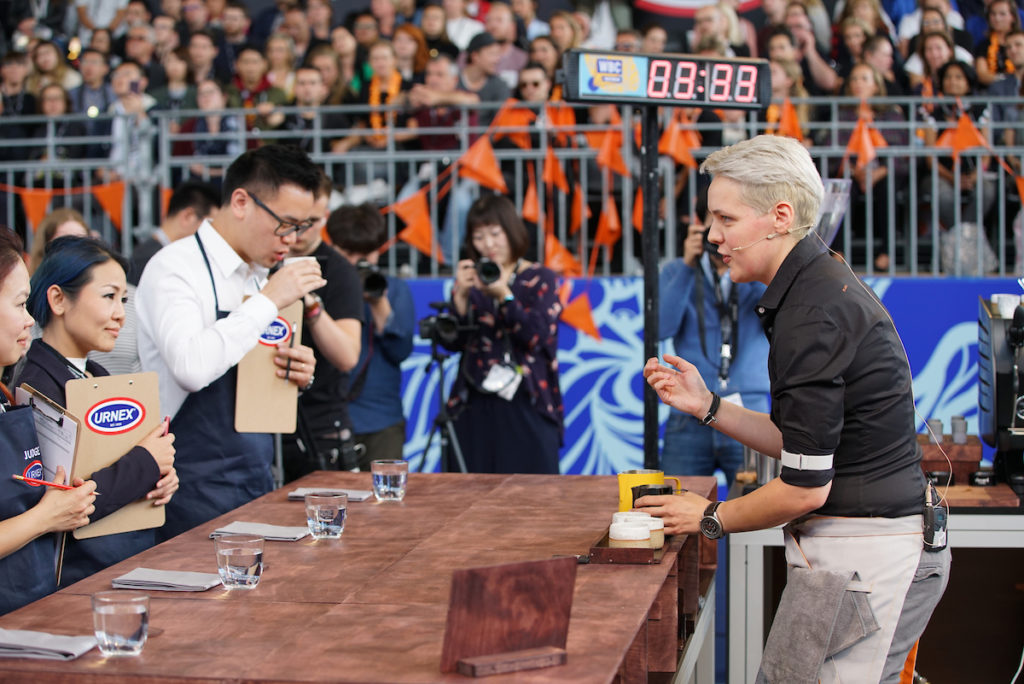
If you could give any advice to a new barista competitor, what would you tell them?
I would tell to go for the competition without expectation, so they won’t put unnecessary pressure on themselves. And try to learn and enjoy this moment as much as it is possible. You don’t have to win to get a great learning and winning experience.
Can folks hire you now for consulting or events?
Yep! I’m more than happy to work on some new and interesting projects.
Is there anyone special that you’d like to thank? Any person or persons on your team that you’d like to shout out?
Of course! I would be lost without my team: Paula Adamska and Kamila Adamiec. They did the most important thing for me, which was making everything perfect backstage so that onstage I could simply enjoy the routine. Also the team from Australia: Sasa Sestic, Sam Corra, Yanina Ferrayra, Angus Mackie, Hugh Kelly, and Matthew Lewin. Their experience and support was crucial.
Check out Agnieszka Rojewska’s performance video here.
Photos used with permission courtesy World Coffee Events.
